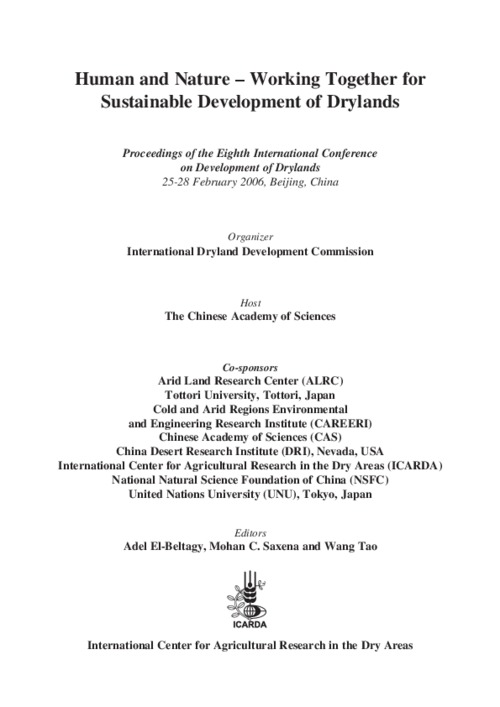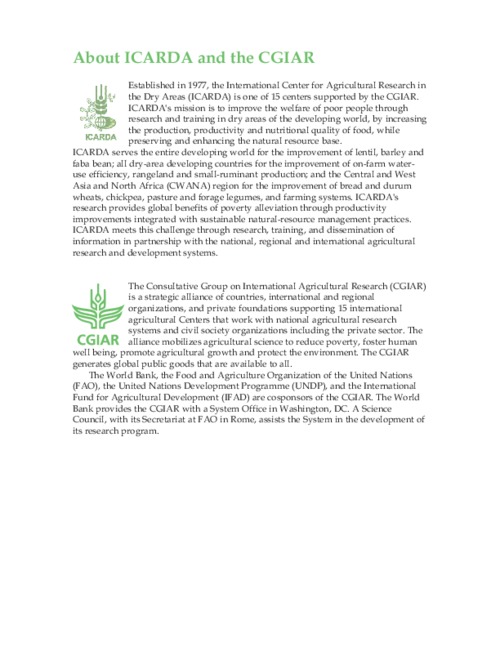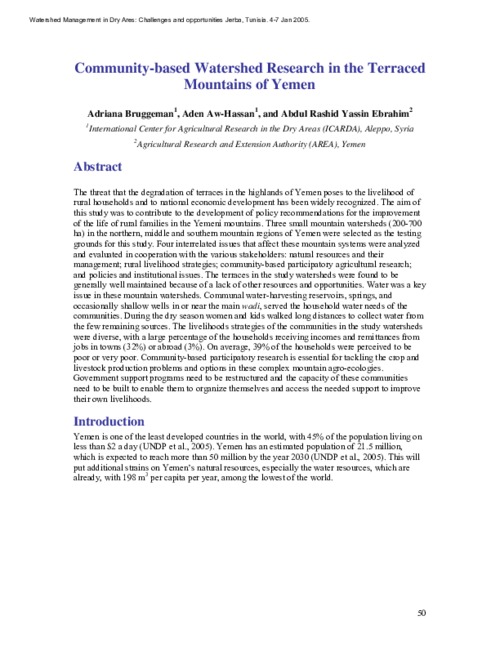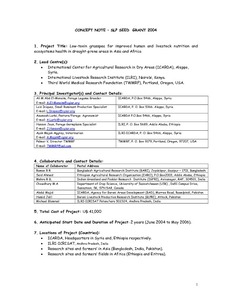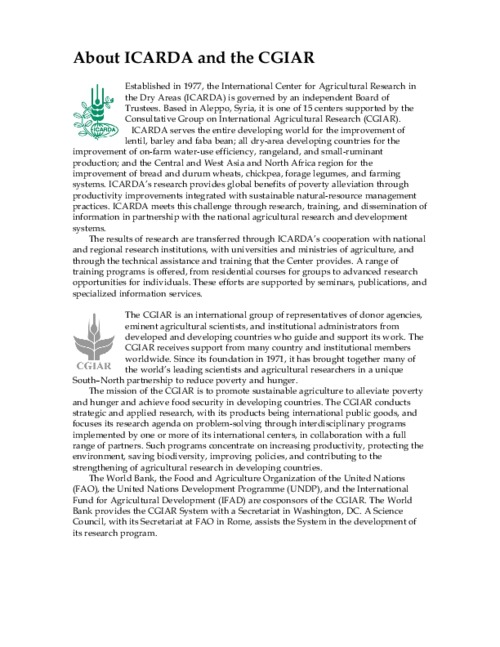Location
The International Center for Agricultural Research in the Dry Areas (ICARDA) was established in 1977. It is one of 15 such centers supported by the CGIAR. ICARDA’s founding mandate to promote agricultural development in the dry areas of developing countries remains highly relevant today.
ICARDA works with a tight focus on the problem-solving needs of resource-poor farmers, achieving this through the in-field delivery of its research outputs. Although global food production has increased by 20 per cent in the past decade, food insecurity and poverty remain widespread, while the natural resource base continues to decline.
International research centers such as ICARDA, which have helped drive previous improvements, continue to deliver new technologies to support sustainable growth in agriculture, and crucially, to work with a wide range of partners to accelerate the dissemination of these technologies.
ICARDA’s biggest strength is its staff – 600 highly skilled men and women from 32 countries. Our research and training activities cover crop improvement, water and land management, integrated crop-livestock-rangeland management, and climate change adaptation.
Other interventions include:
- Water harvesting - supplemental irrigation and water-saving irrigation techniques
- Conservation agriculture methods to reduce production costs and improve sustainability
- Diversification of production systems to high-value crops – horticulture, herbal and medicinal plants
- Integrated crop/rangeland/livestock production systems including non-traditional sources of livestock feed
- Empowerment of rural women – support and training for value-added products.
The ICARDA genebank holds over 135,000 accessions from over 110 countries: traditional varieties, improved germplasm, and a unique set of wild crop relatives. These include wheat, barley, oats and other cereals; food legumes such as faba bean, chickpea, lentil and field pea; forage crops, rangeland plants, and wild relatives of each of these species.
ICARDA’s research portfolio is part of a long-term strategic plan covering 2007 to 2016, focused on improving productivity, incomes and livelihoods among resource-poor households.
The strategy combines continuity with change – addressing current problems while expanding the focus to emerging challenges such as climate change and desertification.
We work closely with national agricultural research systems and government ministries. Over the years the Center has built a network of strong partnerships with national, regional and international institutions, universities, non-governmental organizations and ministries in the developing world and in industrialized countries with advanced research institutes.
THE ‘DRY AREAS’
Research and training activities cover the non-tropical dry areas globally, using West Asia, North Africa, Central Asia and the Caucasus as research platforms to develop, test, and scale-out new innovations and policy options.
Dry areas cover 41 per cent of the world’s land area and are home to one-third of the global population. About 16 per cent of this population lives in chronic poverty, particularly in marginal rainfed areas. The dry areas are challenged by rapid population growth, frequent droughts, high climatic variability, land degradation and desertification, and widespread poverty. The complex of relationships between these challenges has created a "Poverty Trap."
Members:
Resources
Displaying 416 - 420 of 431Human and Nature – Working Together for Sustainable Development of Drylands
This volume contains the presentations made at the Eighth International Conference on Dryland
Development. It is hoped that it will serve as a repository of information on the problems and prospects of
sustainable management of dry areas and preventing desertification, and will thus be of interest to those
involved in research, extension, development and policy formulation for the benefit of the people of the dry areas. It is our belief it would serve as an important contribution to the objectives of the IYDD.
ICARDA Annual Report 2004
In 2004, ICARDA began strategic visioning, driven by the global focus on achieving the Millennium Development Goals and the realignment of the CGIAR System priorities by the Science Council. It involved, among other actions, a consolidation of the 19 research projects into six mega-projects for better integration of the Center’s multidisciplinary teams, and an increased use of new tools of science in addressing the problems of poverty and degradation of natural resources.
Community-based Watershed Research in the Terraced Mountains of Yemen
The threat that the degradation of terraces in the highlands of Yemen poses to the livelihood of rural households and to national economic development has been widely recognized. The aim of this study was to contribute to the development of policy recommendations for the improvement of the life of rural families in the Yemeni mountains. Three small mountain watersheds (200-700 ha) in the northern, middle and southern mountain regions of Yemen were selected as the testing grounds for this study.
ICARDA Annual Report 2003
Strong partnerships with national agricultural research systems and other stakeholders constitute the backbone of ICARDA’s research agenda. The outreach programs of the Center play a key role in promoting partnerships in their respective sub-regions and in implementing collaborative research and training programs. To make an assessment of the efficiency and effectiveness of the partnerships, the Board of Trustees of ICARDA commissioned an external review of its outreach programs in 2003.



